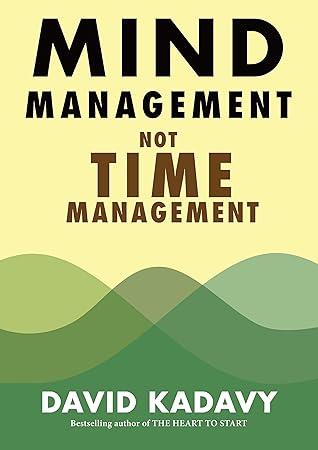More on this book
Community
Kindle Notes & Highlights
Mind Management, Not Time Management: Productivity When Creativity Matters (Getting Art Done Book 2)
by
David Kadavy
Read between
November 28 - December 12, 2021
I had discovered that making progress on my first book wasn’t so much about having the time to write. It was about being in the right state of mind to do the work at hand. I had discovered that today’s productivity isn’t so much about time management as it is about mind management.
But creativity expands way beyond those examples. Scientists who study creativity define it as coming up with something both novel and useful.
Your edge as a human is not in doing something quickly. No matter how fast you move, a computer can move faster. Your edge as a human is in thinking the thoughts behind the doing. As entrepreneur and investor Naval Ravikant has said, “Earn with your mind, not your time.”
Time you don’t use now pays dividends in the future.
The first false assumption time management makes is that time management treats time as a commodity.
The second false assumption that time management makes is that being productive is about producing.
The thing that determines whether what you produce does extraordinarily well or extraordinarily poorly is the quality of your ideas.
“Things are not difficult to make; what is difficult is putting ourselves in the state of mind to make them.”
What work am I in the mood to do right now? Then, ask yourself, What do I need to do that fits that mood?
But sometimes, something simply needs to get done now. In these cases, you can ask yourself, What mood would be most conducive to doing this work? Then, ask yourself, When was the last time I felt that way? Finally, see if you can replicate the conditions that put you in that mood.
The First Hour Rule is simply this: Spend the first hour of your day working on your most important project, and your most important project, only.
Don’t race against time, walk along with it.
Don’t judge each day by the harvest you reap, but by the seeds you plant. —Robert Louis Stevenson
So, the four stages of control – which scientists widely refer to as the Four Stages of Creativity – are Preparation, Incubation, Illumination, and Verification.
To make novel and useful connections, you need to connect concepts that seem to be unrelated.


